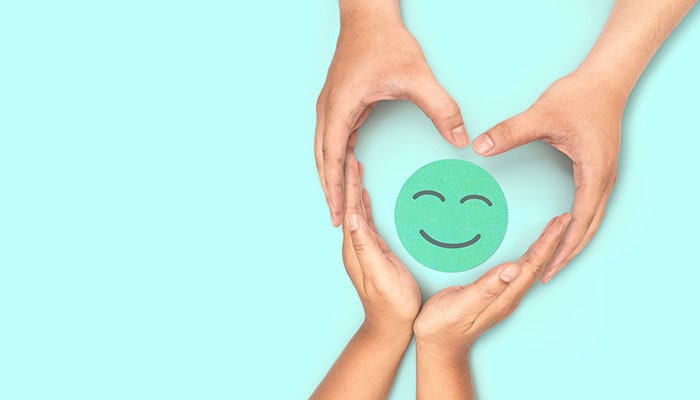When it comes to anxiety in children, parents often seek out safe, natural alternatives to medications that may carry side effects. Addressing anxiety holistically allows families to explore remedies that nurture emotional well-being without adding to the child’s stress. This guide explores the causes of child anxiety, natural interventions, and how parents can effectively support their child’s mental health with natural anxiety solutions for kids.
Understanding Child Anxiety
What is anxiety in children?
Anxiety is a normal reaction to stress, but when it becomes overwhelming or persistent, it can interfere with a child’s daily life. Children may not always express their feelings directly, but they often manifest anxiety through physical symptoms such as stomachaches or headaches, as well as behavioral changes like irritability or difficulty concentrating. Understanding these signs is crucial for addressing the issue early on.
Common symptoms and signs
Parents should watch for symptoms such as restlessness, excessive worry, sleep disturbances, and avoidance of activities the child once enjoyed. These signs may be coupled with physical issues like rapid breathing, trembling, or an upset stomach. By identifying the symptoms, parents can start exploring effective anxiety relief options.
Identifying triggers and causes
Triggers for anxiety in children can vary greatly, from school-related stress, changes at home, or even exposure to news events. In some cases, there might be a genetic predisposition to anxiety, or the child could be responding to environmental factors like a high-pressure school atmosphere or family tension. Identifying these triggers allows parents to offer more targeted support and understanding.
The Importance of Natural Anxiety Solutions For Kids
Safety concerns with medication
While medications can be effective for anxiety in certain cases, there are always concerns about side effects, particularly for children. Many parents prefer to avoid pharmaceuticals due to the risk of dependency or undesirable effects, seeking safer, natural alternatives instead. Natural remedies provide a gentler approach to managing anxiety without the concern of long-term medication use.
Benefits of a holistic approach
Natural and holistic remedies take into account the whole child—their physical, emotional, and psychological needs. These methods not only aim to alleviate the symptoms but also encourage children to develop lifelong coping mechanisms. Holistic approaches often focus on strengthening the child’s overall resilience, creating sustainable well-being.
Promoting long-term coping strategies
Natural remedies tend to promote long-term coping strategies that extend beyond the immediate alleviation of anxiety. Whether it’s through mindfulness practices or lifestyle adjustments, these methods teach children how to handle stress in healthy ways, potentially reducing the likelihood of future anxiety episodes.
Mind-Body Techniques
Deep breathing exercises
Deep breathing is one of the simplest and most effective techniques for calming anxiety. By teaching a child how to take slow, controlled breaths, parents can help them manage stress responses. Breathing exercises can easily be integrated into a daily routine, offering immediate relief during anxious moments.
Progressive muscle relaxation
Progressive muscle relaxation involves tensing and then relaxing different muscle groups. This method helps children become aware of the tension they may carry in their bodies and how to release it. Regular practice can aid in reducing anxiety and promoting better sleep patterns.
Guided imagery and visualization
Visualization techniques, often called guided imagery, encourage children to imagine peaceful scenes or happy moments. This practice helps shift their focus away from anxious thoughts and creates a sense of calm. Parents can assist by guiding their child through imagery or providing apps or recordings that specialize in relaxation.

Herbal and Nutritional Supplements
Valerian root
Valerian root is a natural herb known for its calming properties. It’s often used to address insomnia and anxiety due to its potential ability to improve sleep quality. However, parents should consult with a healthcare professional to ensure it’s appropriate for their child and to determine the right dosage.
Chamomile
Chamomile is another gentle herb frequently used to reduce anxiety. It can be consumed as a tea or in supplement form and is generally well-tolerated by children. Its calming effects may help soothe nervousness and promote relaxation before bedtime.
Omega-3 fatty acids
Omega-3 fatty acids, commonly found in fish oil, have been studied for their impact on mental health, including anxiety. These essential fats play a role in brain health and can help regulate mood. Ensuring a child receives enough Omega-3 through diet or supplements could support their emotional well-being.
Aromatherapy and Essential Oils
Lavender
Lavender is widely recognized for its calming scent, making it a popular choice for relieving anxiety. Parents can diffuse lavender essential oil in their child’s room before bed or add a few drops to their bath to help them unwind.
Bergamot
Bergamot oil has uplifting and stress-relieving properties. When inhaled, it can help reduce feelings of anxiety and depression. As with any essential oil, it’s important to use it safely around children by properly diluting it and avoiding direct contact with the skin.
Vetiver
Vetiver oil has grounding qualities, making it beneficial for managing anxiety. It’s often used in aromatherapy for children dealing with emotional stress, helping to foster a sense of calm and balance.
Lifestyle Changes
Establishing routines
A predictable daily routine can help ease anxiety by providing structure and stability. Children thrive on consistency, and knowing what to expect each day can significantly reduce feelings of uncertainty or worry.
Encouraging physical activity
Physical activity is an effective way to manage anxiety, as exercise releases endorphins, which help improve mood. Encouraging children to engage in activities they enjoy—whether it’s playing outside, swimming, or taking a dance class—can make a huge difference in their emotional health.
Fostering a balanced diet
What a child eats can affect their mental health as well. A diet rich in whole grains, fruits, vegetables, and lean proteins helps maintain steady blood sugar levels, which can reduce irritability and mood swings that exacerbate anxiety.
Engaging in Creative Activities
Art therapy
Art therapy allows children to express their feelings non-verbally, which can be incredibly beneficial for those struggling with anxiety. Through drawing, painting, or crafting, children can externalize their emotions, making it easier for parents to understand what they’re going through.
Music therapy
Music has the power to soothe anxiety and elevate mood. Introducing music therapy, where children actively create or listen to calming tunes, can provide them with an emotional outlet and a sense of comfort.
Drama and role-playing
Role-playing and drama activities allow children to act out scenarios that may be causing them anxiety. This method gives them a chance to practice coping strategies in a safe and playful environment, building confidence in handling real-life stressors.
Finding Support
Involving family members
Family involvement is crucial when addressing a child’s anxiety. Parents, siblings, and other caregivers can create a supportive environment by being understanding and reinforcing positive coping strategies. Open communication within the family ensures that the child feels secure and understood.
Connecting with support groups
Sometimes, external support is needed. Finding a community of other parents or children who are dealing with similar issues can provide valuable insight and encouragement. These support groups, both online and in-person, offer a platform for sharing experiences and learning from others’ successes.
Collaborating with healthcare professionals
Healthcare professionals, such as pediatricians, counselors, or holistic practitioners, play an essential role in guiding parents through the process of managing their child’s anxiety. Collaboration ensures that all remedies and interventions are age-appropriate and safe for the child.
The Calming Effect of Topical Magnesium
Magnesium plays a crucial role in managing anxiety, and topical magnesium treatments, such as lotions or sprays, are an excellent option for children. This mineral helps relax muscles and calm the nervous system, providing a gentle, natural solution for easing anxiety.
Frequently Asked Questions
How do I know if my child’s anxiety is severe enough to warrant intervention?
It’s important to observe whether anxiety is disrupting your child’s daily activities or relationships. If their anxiety prevents them from engaging in normal routines, such as attending school or socializing with friends, it may be time to seek professional advice.
What if my child doesn’t respond to natural remedies?
Natural remedies may take time to show effects, and what works for one child may not work for another. If you don’t notice improvements, consult with a healthcare professional to explore other options and ensure you’re addressing the root causes.
Are there any side effects associated with herbal supplements?
Herbal supplements can have side effects, especially if taken in excess. Always consult with a healthcare provider before introducing new supplements to ensure they are safe and appropriate for your child.
How can I help my child with anxiety at school?
Communication with teachers and school counselors is key. They can help implement strategies such as relaxation breaks or setting up a calm space where your child can go if they feel overwhelmed.
How can I monitor my child’s progress with these remedies?
Keep a journal to track changes in your child’s mood, sleep patterns, and overall behavior. This will help you identify which remedies are working and where adjustments might be needed.



